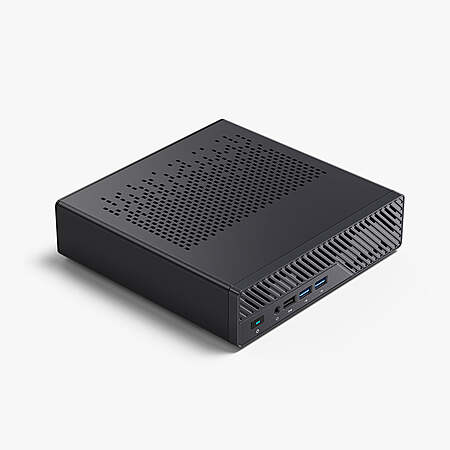popularSuryasis posted Today 06:11 AM
Item 1 of 1
popularSuryasis posted Today 06:11 AM
Minisforum MS-A1 Refurbished: Ryzen 7 8700G, 32GB DDR5, 1TB Gen4 SSD, USB4, OCuLink, 2x2.5G Lan, Wi-Fi 6E, Win11H @ $475.15 + F/S
$475
$559
15% offMinisforum
Get Deal at MinisforumGood Deal
Bad Deal
Save
Share

Leave a Comment
5 Comments
Sign up for a Slickdeals account to remove this ad.
- Unlike AMD's AM4 CPUs, it appears that most non "F" Ryzen AM5 CPUs include a weak iGPU [wikipedia.org]. This means that a non "G" 7000 or 9000 CPUs can work without a discrete graphics card.
- Ryzen APUs, desktop CPUs that end in "G", support lower PCIe versions. For example, the AM4 CPUs 5700G and 5600 support PCIe 3 and 4 respectively. The AM5 CPUs 8700G, 7600, and 9600 support PCIe 4, 5, and 5. To put it simply, you get "more PCIe" with the non "G" CPUs.
- Ryzen APUs likely use more power and generate more heat than similar CPUs for similar workloads because of the beefier iGPU. Especially when running a server OS without at GUI.
- It's normally much easier to pass through a separate, unused GPU to a VM. If you get an APU, then the additional graphics power of the APU may go unused.
- Newer Intel CPUs let you split up the iGPU into multiple virtual GPUs, which are much easier to pass through to VMs. I greatly prefer AMD to Intel CPUs in general. But for a homelab, an Intel CPU may be a better choice if you use VMs and have a desire to accelerate video transcoding.
These are just some observations I've made over the past few years. In many scenarios for homelabs, you may be better off getting a non-"G" AM5 CPU.Leave a Comment